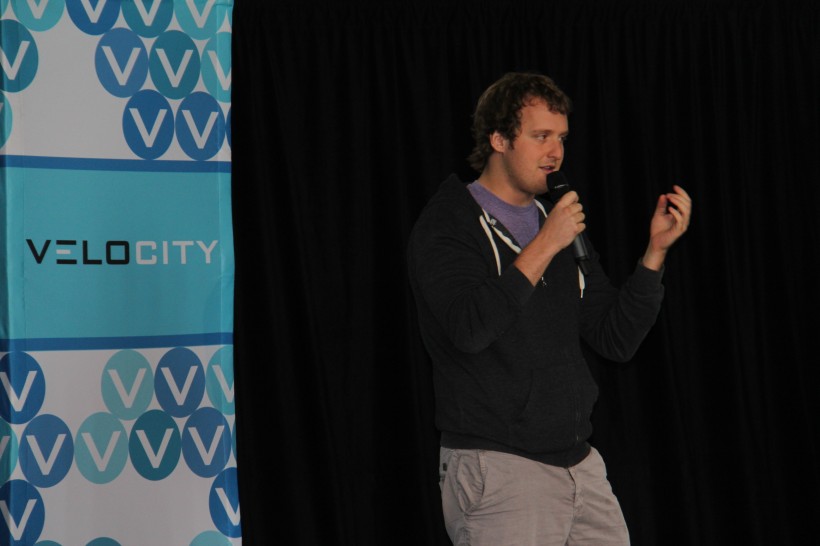If you ask Ted Livingston what makes Kik Interactive worth a billion dollars – which someone did during a discussion at University of Waterloo Wednesday night – the answer eventually comes down to its “killer demographic.”
Waterloo-based Kik created headlines around the world in August when it received a US$50 million (C$65.2 million) strategic investment from Chinese tech giant Tencent, valuing the maker of the popular North American chat network at US$1 billion. Tencent is creator of the chat app Weixin, or WeChat, which is extremely popular with young people in China. In fact, more Chinese use chat than the internet, and it has become an essential tool in many everyday commercial transactions.
“WeChat has become so dominant in society that you have to have WeChat to function,” Livingston, the Kik CEO, said on Wednesday night. He added that the Tencent execs told him during the negotiations: “We think there are only two companies in the West who can do this in the U.S., Facebook and you, and we like you.”
Related: Kik Interactive Raises US$50B
About 200 people attended the talk titled “How to Build a Unicorn” (a unicorn is a company valued at $1 billion) in which Livingston discussed the company’s past, present and future with Velocity Director Mike Kirkup.
A relaxed and witty personality in his grey hoodie, Livingston amused the audience with the tales of building up the company to the point where it has 240 million users in 230 countries. But the really fascinating part of the discussion was the insight it provided into the direction in which this unicorn is pointing its pretty little horn.
Founded in 2009, Kik is a chat service that is now used by about 40 percent of the teens in the U.S., and about 70 percent of its users are aged between 13 and 24 years. These teens now use Kik mainly for its chat function, but Livingston aspires to add functionality so his clients – who will grow in spending power as they age – will use Kik for a range of tasks. The company said when it announced the funding round that it would use the money to double its size.
One question that arose during the discussion was how Kik will make money, and Livingston said the company now makes some revenue. But he admitted there were skeptics out there who wondered whether Kik will convert those users into paying customers.
In answering, Livingston referred to the “killer demographic” of U.S. teens, who are getting older every year and will require more commercial and financial services as they enter adulthood.
One reason chat has done so well in China, he said, is that millions of people got smartphones before they were on the internet, so it made sense that the first service they would use was chat. From there, it was logical that they would use chat to carry out such tasks as ordering food or transferring money.
That, of course, is not the case in North America, where the general population is used to doing business online. However, Livingston said his young customers are just learning about doing these transactions, and it’s logical they will choose to do them with chat rather than on the internet.
When he was asked what company he admired most, Livingston answered Facebook, the company that is his main competitor. Most U.S. tech companies don’t understand the potential of chat, but Facebook does, he said. He added Facebook is excellent at executing and its staff outnumbers Kik 90 to 1.
“I still think we can [succeed in the long-term] but I feel like we’re up against the best company in the world,” he said.
In financing this grand expansion, he said an initial public offering may be an option but he is uncomfortable with the thought of exiting Kik through a sale.
“Maybe one day we’ll sell but I don’t know,” he said. “To me, selling your company is like selling your child. … I think emotionally it would be very difficult to do.”










